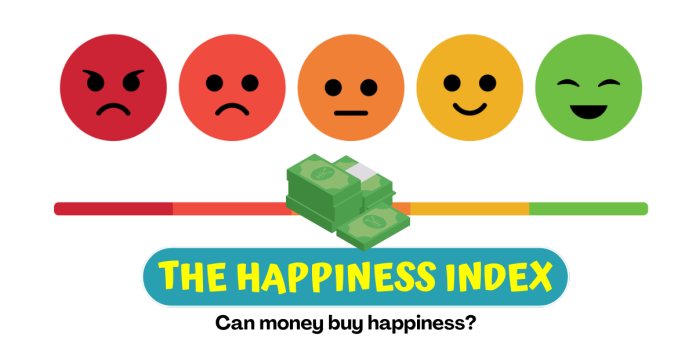In economics, the pursuit of happiness has often been deemed elusive, a subjective measure impossible to quantify. However, a burgeoning field, the economics of happiness, has stepped into the spotlight, untying the intricate factors that contribute to our collective well-being. In this article, we delve into the multifaceted nature of happiness, its measurement challenges, and the actionable insights that can redefine our understanding of success.
Rethinking Happiness
Beyond Material Wealth Traditionally, economists equated prosperity with material wealth, assuming a direct correlation between income and happiness. The economics of happiness disrupts this conventional narrative, acknowledging that well-being is a tapestry woven with threads of health, relationships, personal growth, and positive emotions.
Diminishing Returns
The Role of Income in Happiness Studies reveals a nuanced relationship between income and happiness. While financial stability plays a role, its impact diminishes beyond a certain threshold. The economics of happiness contends that true contentment arises from a delicate balance of various elements, urging us to look beyond the relentless pursuit of wealth.
The Pillars of Well-Being To comprehend happiness
We must consider the holistic components that shape our lives. Good health emerges as a cornerstone, encompassing both physical and mental well-being. Meaningful relationships, personal growth, and positive emotions amplify the tapestry, emphasizing that well-rounded fulfilment stems from various sources.
WORLD HAPPINESS INDEX

Data Source: United Nations Sustainable Development Solutions Network
In a world where happiness is increasingly recognized as a valuable metric of societal well-being, India’s ranking at 136 on the World Happiness Index raises eyebrows and sparks curiosity. This unexpected placement prompts a deeper exploration of the factors that contribute to the perceived happiness of its citizens.
One significant factor influencing India’s happiness ranking is its economic landscape. While the country boasts rapid economic growth, the disparities between the affluent and less privileged remain pronounced. Addressing economic inequalities becomes crucial for fostering a more equitable and happier society.
Measuring the Intangible
Quantifying Happiness Capturing the elusive essence of happiness poses a unique challenge. Economists employ diverse methods, including life satisfaction scales and targeted questionnaires, to gauge individuals’ self-reported levels of happiness. By blending qualitative and quantitative approaches, researchers strive to unravel the intricacies of our emotional landscape.
Putting Happiness into Action
Practical Insights The economic implications of happiness research extend far beyond theoretical musings. Policymakers armed with insights from the economics of happiness can design interventions that prioritize public well-being. Investments in healthcare, education, and social welfare programs take precedence, fostering a society where happiness becomes a collective goal.
Corporate Happiness
Strategies for Success Businesses too can tap into the wisdom of happiness economics. Crafting positive work environments, nurturing employee engagement, and promoting work-life balance contribute to a culture of contentment. As companies recognize the correlation between employee satisfaction and productivity, the workplace becomes a hub for happiness.
Individual Empowerment
Navigating the Path to Happiness On an individual level, the economics of happiness empower us to make intentional choices that elevate our well-being. Prioritizing health, fostering meaningful relationships, pursuing personal passions, and cultivating gratitude emerge as potent strategies. The pursuit of happiness becomes a conscious journey, guided by principles grounded in holistic well-being.
Conclusion
In a world fixated on traditional measures of success, the economics of happiness presents a paradigm shift. Beyond the confines of GDP, it champions a holistic approach to well-being, acknowledging the intricate dance of physical, mental, social, and emotional factors.


